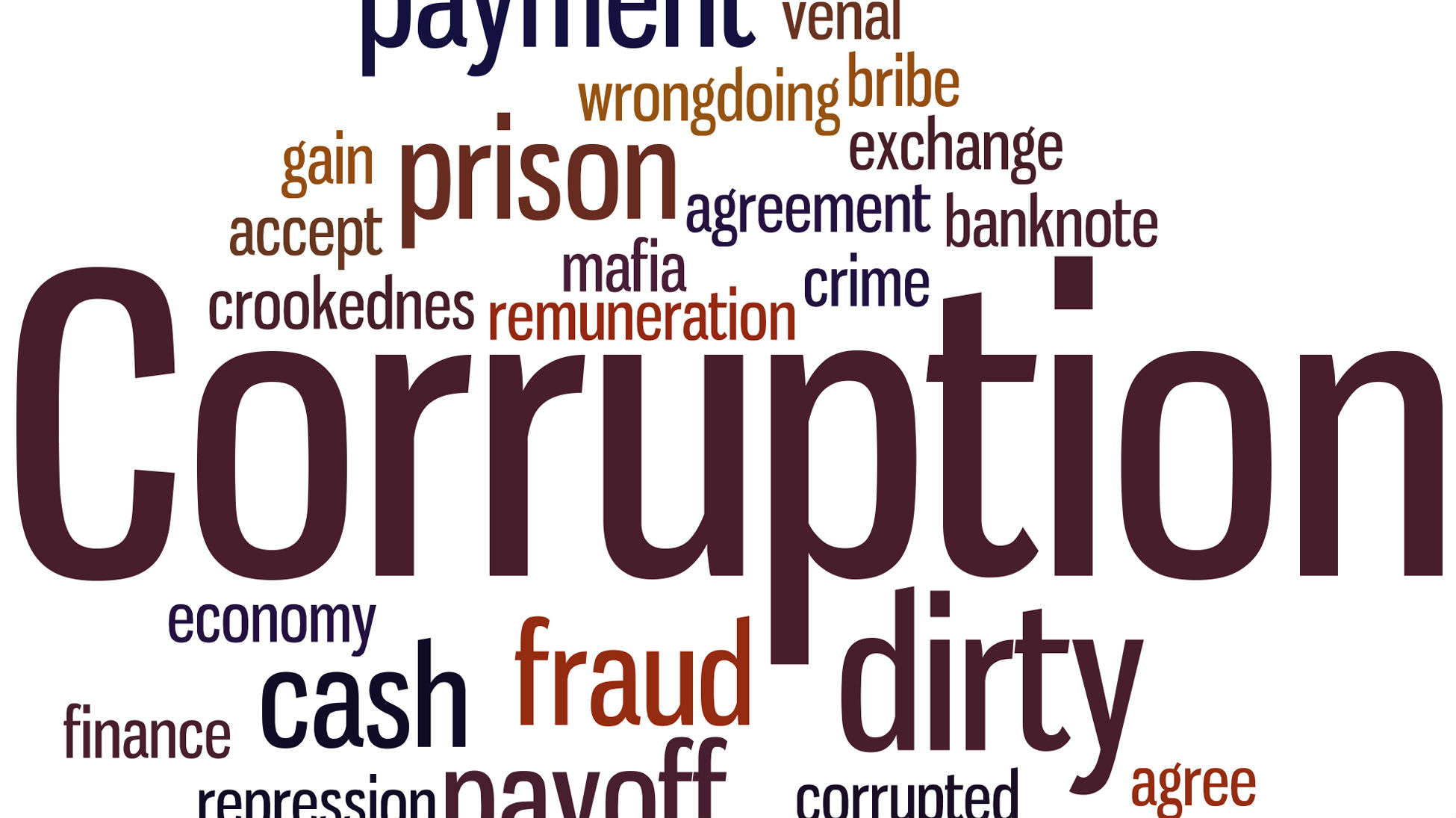News
Developing countries lose $1tr annually to corporate transgressions- Osibanjo
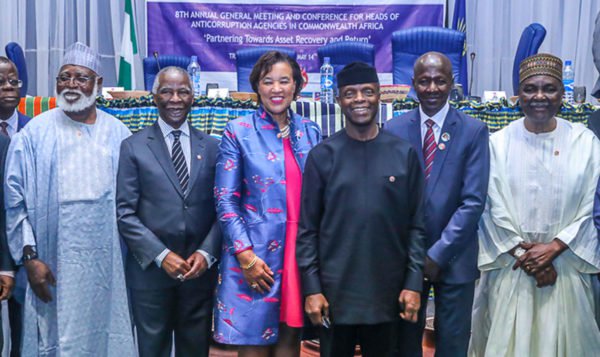

Vice President Yemi Osinbajo yesterday listed six obstacles facing Nigeria and other nations seeking to repatriate looted funds and confiscate assets of corrupt elements.
He also said developing countries lose $1trillion annually to corporate transgressions, adding that the private sector’s complicity in corrupt practices is significant.
In Osinbajo’s view, the procedures to obtain Mutual Legal Assistance to confiscate and repatriate proceeds of corruption need to be reformed.
To Commonwealth Secretary-General Baroness Patricia Scotland, the world is facing a Tsunami of corruption.
Osinbajo and Scotland spoke at the opening of the eighth Commonwealth Regional Conference for Heads of Anti-Corruption Agencies in Africa, hosted by the Economic and Financial Crimes Commission (EFCC) in Abuja.
Osinbajo said the procedures for repatriation of stolen funds and proceeds of corruption are complex.
He listed six major obstacles which have made the implementation of Mutual Legal Assistance among countries difficult. The challenges are:
absence of a legal basis for cooperation in some countries;
differences in legal and procedural frameworks;
language barriers;
bank secrecy;
jurisdictional issues; and
lack of funding.
Osinbajo said: “Dismantling the conspiracies that facilitate export of stolen assets is probably as important as the theme of this conference,
“Partnering towards Assets Recovery and Return”.
“Recovering stolen assets not only accomplishes the goal of restitution, it also serves as a potential deterrent to future corruption.
“Article 51 of the United Nations Convention Against Corruption states unequivocally that return of assets is a fundamental principle of the Convention, and mandates States Parties to afford one another the widest measure of cooperation and assistance in this regard. Similarly, Article 16(1) (c) of the African Union Convention for Preventing and Combating Corruption obligates States Parties to adopt such legislative measures as to enable repatriation of proceeds of corruption.
“The effective implementation of these Conventions depends to a considerable extent on the willingness, cooperation and the assistance of States in the areas of mutual legal assistance (MLA), law enforcement cooperation, asset recovery and return, and technical assistance. “Regrettably, the procedures to obtain Mutual Legal Assistance to seize, confiscate and repatriate proceeds of corruption are often complex and problematic, and in urgent need of reform.
“The absence of a legal basis for cooperation in some countries, differences in legal and procedural frameworks, language barriers, bank secrecy, jurisdictional issues, a lack of funding are some of the obstacles standing in the way of effective mutual legal assistance. I’m pleased to note that there is evidence of a renewed commitment to collectively identifying the most effective means of overcoming all of these existing legal and technical obstacles to asset recovery and return. “
Osinbajo also said developing nations had been losing $1trillion annually to corporate transgressions, adding that the private sector had been complicit in corrupt practices.
“The 2014 report claims that developing countries lose $1trillion annually to corporate transgressions, most of it traceable to the activities of companies with secret ownership,” Osinbajo said.
He went on: “Another report that may enjoy a major mention here is the 2015 report of the High Level Panel on Illicit Financial Flows from Africa. Chaired by our guest of honour, former South African President Thabo Mbeki, the panel stated in its report that Africa had lost over $1 trillion over a 50-year period and that Africa loses more than $50 billion annually to illicit financial flows. Most of these illicit flows are perpetrated in the extractive sector and through companies with hidden ownerships.
“The cost of corruption therefore imposes on all African countries and governments a moral obligation to fight it with vigour and political will, by strengthening all institutions and systems involved in law enforcement as well as in promoting a culture of transparency and accountability.
“While public sector corruption is the usual focus, the private sector’s complicity is significant, as when large multinational corporations engage in tax evasion or transfer pricing.
“But it is the complex web of public-private collusion and connivance that results in proceeds of corruption ending up in foreign countries and especially in their financial institutions and systems.”
He said anonymous corporate ownership serves as a vehicle for masking conflict of interests, corruption, tax evasion, money laundering, and even terrorism financing.
Osinbajo said: “If nothing else, the Panama Papers clearly illustrated the global scale and spread of this problem. So this is a global challenge and nothing less than a truly global approach will be needed to tackle it.
“This is why we salute the United Kingdom, Norway, Netherlands and Denmark for leading the way in establishing public registers of the real, human owners of companies in their countries. We call on other G8 and G20 countries not only to follow suit but also to initiate actions to end corporate secrecy in some of their dependencies.”
Osinbajo explained the condition attached to the return of $320million Abacha loot to Nigeria by Switzerland.
He said: “The GFAR saw the signing of a Memorandum of Understanding between Nigeria and the Government of Switzerland for the return of an additional USD$320 million of the Sani Abacha loot. Included in that agreement is the commitment that the funds would be invested in one of the Nigerian Government’s flagship social investment programmes – a Conditional Cash Transfer scheme targeted at the poorest and most vulnerable households in the country.”
The Vice President asked Heads of Anti-Corruption Agencies in Commonwealth Africa to collaborate to fight corruption and asset recovery.
Commonwealth Secretary-General Scotland said the world was facing a Tsunami of corruption.
She said globally about $800billion to $300 trillion had been lost to money laundering globally.
She said Africa loses $148billion to corruption per annum.
She said: “Globally, we are facing a Tsunami of Corruption. In 2015, UNODC estimated that the amount of money laundered globally each year is 2 – 5% of global domestic product or between $800 billion and $200 trillion.
“It is estimated that corruption costs the African continent over $148 billion per annum.
“You, the heads of anti-corruption agencies, will be seeking to meet this challenge. You are leading the fight against this Tsunami.
“You are the early warning mechanisms, the rapid responders, mobilisers; you put in place necessary, critical measures that enable us to build back better.
“I would like to share a few of the inspiring stories on how you and the continent are beginning to win the battle against corruption.”
Here in Nigeria, over $3billion of ill-gotten gains have been recovered.
“I would like to put on record my deepest admiration and gratitude for all anti-corruption agencies gathered here today, including those at the forefront of cases I have just highlighted.
“It is prescient that we are gathered here in Abuja at the invitation of the Economic and Financial Crimes Commission of Nigeria, which under the excellent and forthright stewardship of its Acting Chair, Mr Ibrahim Magu continues to effect real change and deliver positive results.
“I also want to recognise and applaud the distinguished efforts of Professor Bolaji Owasanoye and his team at the Presidential Advisory Committee Against Corruption in promoting the reform agenda of the government on the anti-corruption effort.
“We also owe His Excellency President Buhari immense gratitude for his wisdom and leadership.”
Acting EFCC Chairman Ibrahim Magu said President Muhammadu Buhari had kept his promise to fight corruption.
Magu said: “There are leaders of States today, who are not assertive on matters of state policy; you can hardly say with any conviction that such and such is the position held by such leaders on issues of national or international significance.
“You cannot however say that of President Buhari, who from the very beginning, even while he sought political office, publicly requested to be judged by his anti-corruption credentials than on any other.
“Very early in the life of his administration, the president declared that: ‘The institutions of State dedicated to fighting corruption will be given independence and prosecutorial authority without political interference.’
“I can confirm to you, Madam Secretary and my dear colleagues, that the promise has been kept.
“The fact that the fight against corruption is central to the administration of President Buhari is not accidental. That is what has defined the entire public lives of our first and second citizens and we are extremely lucky at this time in the life of our nation to have the most committed anti-corruption administration led by the President piloting the affairs of Nigeria.
“I dare say there has never been a better, more focused and committed team as far as anti-corruption is concerned, anywhere in Africa, than the current leadership in Nigeria.”
News
Lady Dies After Friends Pushed Her Into Boiling Pot Of Fresh Pepper In Delta State


A Nigerian man identified as Israel Joe, has revealed how his friend, Roseline, died after she was pushed into a boiling pot of fresh pepper and tomatoes by her two female friends in Sapele, Delta State.
Joe stated that Roseline, a caterer, went on a trip with her friends to Sapele for a catering job where the bitter ordeal occured.
She tragically passed away on Saturday, April 13 after spending two weeks at the hospital in a very horrible state.
In a Facebook post on Friday, Joe said that before her untimely death, Roseline confided in him about two of her friends who were treating her coldly.
And he has vowed to bring them to justice.






This is such a heartbreaking event.
News
IPOB Declares May 30th As Sit-at-home Day Across The Southern East States To Honour Biafran Fallen Heroes


The Indigenous People of Biafra has declared May 30, 2024, as a sit-at-home day across the South-East to celebrate Biafran soldiers.
The pro-Biafran group said that day is set aside annually to celebrate the men and women who died in the Biafran war between 1967 and 1970 and beyond and even until now.
This was made known in a press statement by the group’s spokesman, Emma Powerful, on Thursday, adding that every Biafran in the South-East is expected to sit at home and reflect on the war.
He cautioned South-East residents to avoid loitering about on this day, adding that those who intend to travel to and fro Biafra land must do so before the evening of May 29.
The IPOB statement also directed that all the residents of “Biafra Land” are to stay indoors from 6 am to 6 pm on May 30, 2024.
He also called on christians and traditionalists to pray to Chukwu okike abiama for the fallen heroes, And also for the independence of Biafra from Nigeria.
News
Anambra State Government Arrests Man For Marrying Off His Underage Daughter


The Anambra State Government has arrested one Uzochukwu Okoli, for marrying off his underaged daughter.
Okoli was apprehended after his daughter reported to the State Ministry of Women and Social Welfare about the alleged ill-treatment being meted out to her by her father and the man he forced her to marry.
The daughter, Chioma Okoli, who is currently 16 years old, said after the death of her mother, her father took her and her sister out of Edo state and brought them to Anambra.
She alleged that she was first forced to live with a 70-plus-year-old man at the age of 14 but after some time, she ran back to her father’s house before he finally gave her out to a 34-year-old Chinedu Nweke as husband.
Chioma who was in the company of her sister, explained that life with Chinedu has been a living hell because he allegedly beats her and sometimes pees in her mouth.
She said this act made her run away with their 9-month-old baby. Her father, Uzochukwu Okoli, on the other hand, claimed her daughter is 18 years old and, at some point, said she is 20 years old.


After he was handcuffed, Mr Okoli threatened to deal with the daughters if he made it out of prison. He also urged Chioma and her sister to pray he dies in prison because he would make life more miserable for them.


Meanwhile, the Commissioner for Women and Social Welfare, Hon Ify Obinabo, has instructed that the case be charged to court so that the girl can get justice.
Both Mr Okoli and Chinedu Nweke were arrested and will be arraigned in court.
-

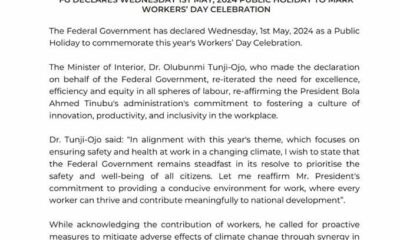

 News5 days ago
News5 days agoFG Declares May 1st Public Holiday To Mark Workers’ Day
-

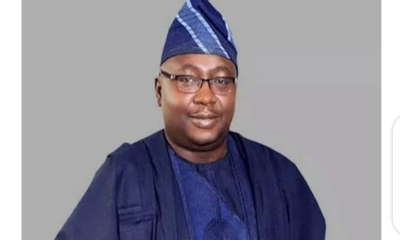

 News5 days ago
News5 days ago“There Would Be total Blackout For Three Months If Electricity Tariff Hike Is Not Implemented ” – Minister Of Power Warns
-



 News4 days ago
News4 days agoNigerians Seek Woman Who Spoke Out Eloquently Against Fuel Scarcity In Viral 1994 TV Clip
-

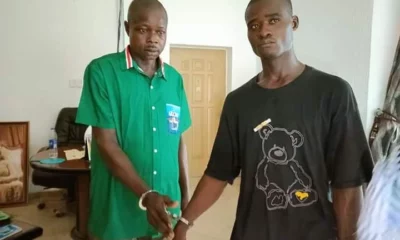

 News3 days ago
News3 days agoAnambra State Government Arrests Man For Marrying Off His Underage Daughter
-



 News3 days ago
News3 days agoIPOB Declares May 30th As Sit-at-home Day Across The Southern East States To Honour Biafran Fallen Heroes
-

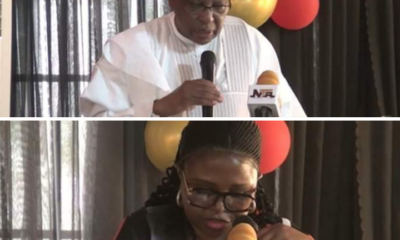

 Education2 days ago
Education2 days agoFederal Government Sets To Commence School-To-Work Scheme
-



 News1 day ago
News1 day agoLady Dies After Friends Pushed Her Into Boiling Pot Of Fresh Pepper In Delta State
-



 Finance17 hours ago
Finance17 hours agoEFCC Chairman Tasks Nigerian Youths Against Crimes And Fraudulent Acts



